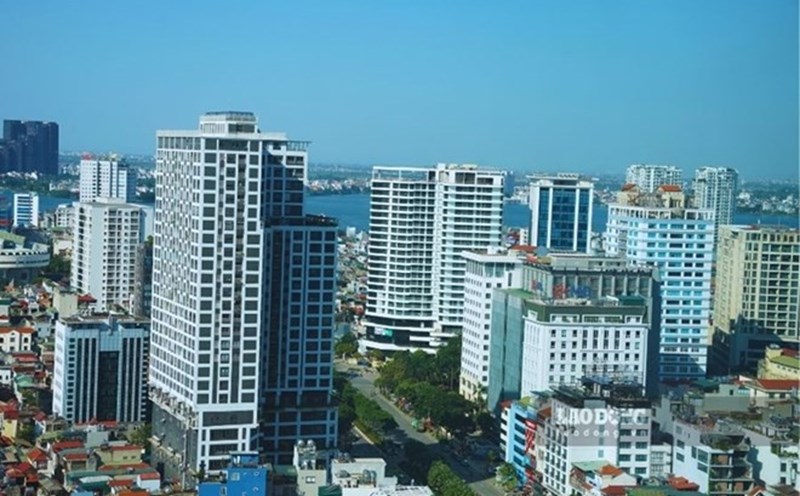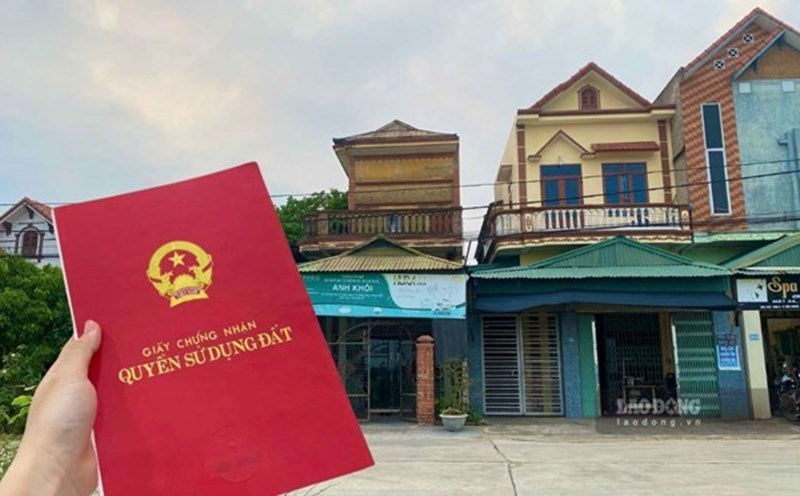The Ministry of Finance has just proposed applying a method of taxing 20% on the difference in value between the purchase and sale prices of real estate according to each transfer. If the purchase price and related costs cannot be determined, the tax is calculated based on the selling price and ownership period, with a tax rate of 2-10% (under 2 years: 10%, 2-5 years: 6%, 5-10 years: 4%, from 10 years or more, 2%).
The imposition of tax on real estate transfer interest clearly shows the orientation of regulating speculative activities and "surfing" - the reason contributing to the recent increase in real estate prices.
There are many opinions supporting this new proposal when they think that taxing based on real profit (selling price minus purchase price and reasonable cost) is the right approach to the nature of income tax, ensuring fairness between losers and profiteers. Non-profit sellers will not have to pay taxes, while those with high profits will contribute accordingly.
According to the results of a study by Batdongsan channel, more than 86% of current real estate buyers aim to invest in "surfing" for profit. The time from the time they buy until the handover is the maximum in a year. Of which, the rate of investors holding real estate for less than 6 months accounts for 50% and for 6-12 months is about 36%. Only 14% have held assets for more than a year.
This means that a large amount of assets are in a state of "waiting" for transfer. Before the new tax proposal was proposed, especially a tax rate of 10% on assets held for less than 2 years or 20% on interest, the defensive mentality could quickly turn into an act of "disbursing goods" to " charge high taxes". Even for investors who do not intentionally recommend, the risk of " thin profits but still having to pay high taxes" can also be the motivation for them to decide to "release goods" sooner.
Financial expert Dr. Nguyen Duy Phuong, Investment Director of DG Capital, expressed the view that the 20% tax rate for individuals is inappropriate if compared to businesses that have paid VAT and corporate income tax.
According to Mr. Phuong, the current tax rate of 2% on transfer value is more reasonable because it is easy to implement and consistent with the current legal system. Currently, speculation is still common, rich people can own dozens of apartments to "hold goods", while young people and low-income people cannot afford to buy a house. Taxation helps increase the flow of supply, support price stabilization and supplement the budget for social housing.
However, with low income and high housing prices, many people buy a second home because they have to save for life or borrow from banks. Taking too high a tax could plunge them into financial crisis.
"If suddenly applied, the tax policy can shock the market, leading to sell-off, causing financial imbalance in banks, and leading to many economic consequences. Therefore, it is necessary to follow a flexible and flexible roadmap," said Dr. Phuong.
From a market perspective, there are still many concerns about applying a 20% tax rate on real estate transfer interest, if implemented in the context of a sluggish market and poor real estate liquidity, it will cause strong negative psychological impacts and risk slowing down already weak trading activities. Those who want to sell goods in advance should be on guard against the possible tax rate, while buyers are "slowing down" because they are worried about no more room to "surf".
The main demand in the current period of the market still comes from the investment group, while real housing demand, although showing signs of improvement, is not enough to create a significant push.
Therefore, according to experts, real estate businesses may be indirectly affected if the secondary market slows down, reducing the possibility of selling off goods and general liquidity in the whole market, putting great pressure on investors currently selling goods.










